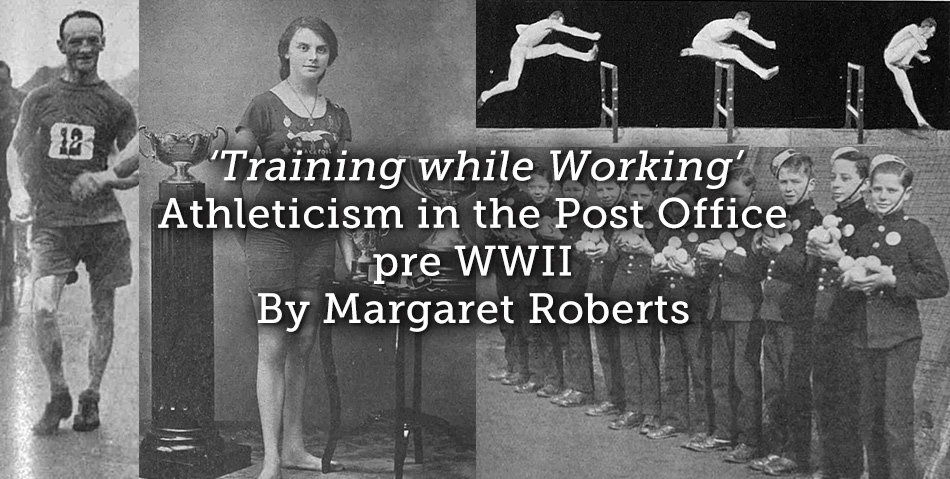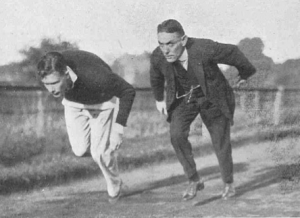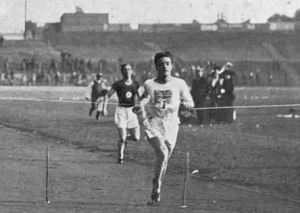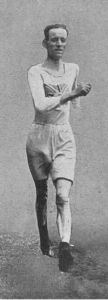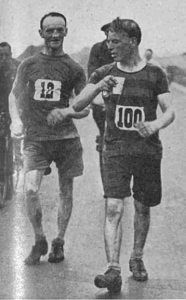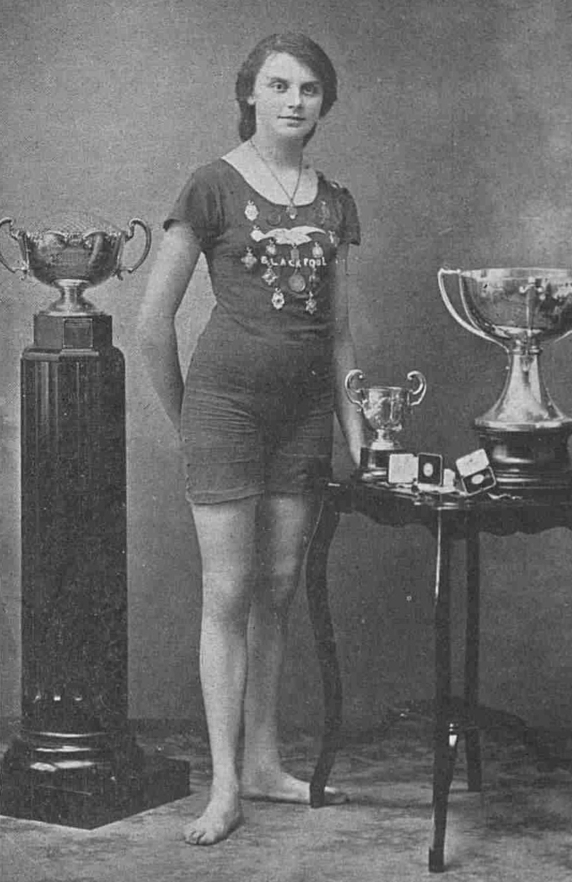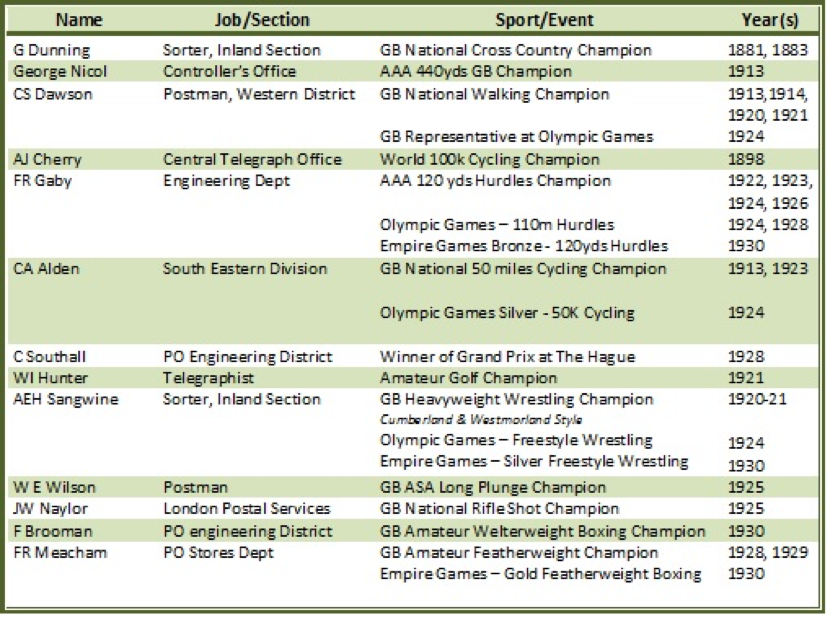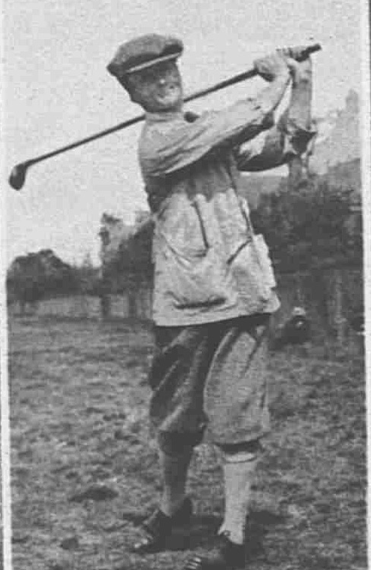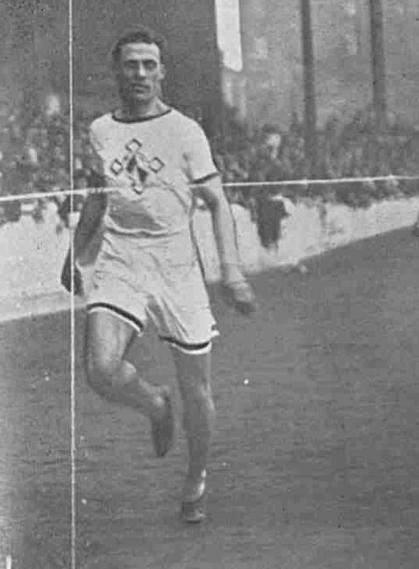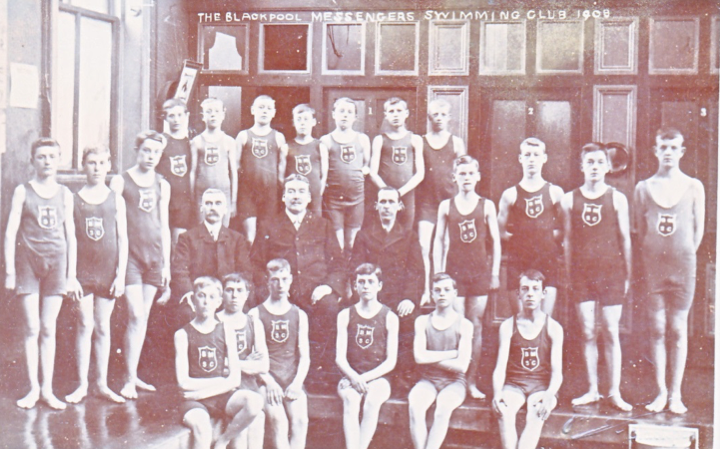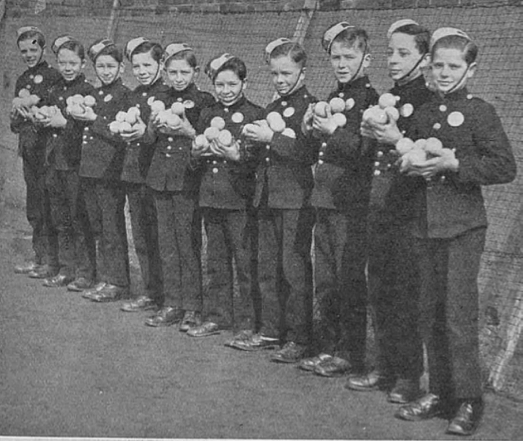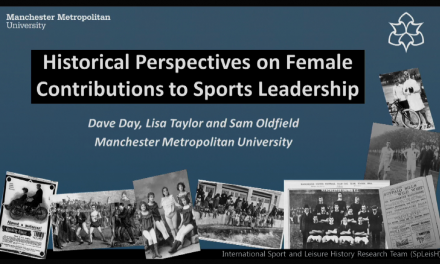Over the years the Post Office has had many sporting clubs, societies and associations for staff members to participate in with many of the larger offices and departments fielding teams in sports such as football, cricket and tennis. Furthermore several of these sports had countrywide “postal leagues” such as football’s Courier Cup. As well as a great number of Post Office staff taking part in an abundance of other sporting events, they also featured prominently in the Civil Service athletics championships together with the regional athletics events that were held under the auspices of the Post Office.
Given the high propensity for sport within the company it is therefore perhaps not that surprising there were many regional, national and international champions among Post Office workers, not to mention a smattering of Olympians and World Record holders. The diversity of sports, awards and medals won by employees were heralded in a press announcement headlined ‘Training while working -Postmen must be easily the most athletic people in the world’ released by proud Post Office authorities in January 1932.
The long list of athletic champions and record holding staff showed that postmen past and present had won more records for running, walking, cycling and other sports than any other class of worker in Great Britain, the company claimed.
Foremost on the list was the famous Alfred Shrubb, the champion runner of the world, who was the local Postie at Horsham. Shrubb had no peer as a runner between 1901 and 1904 at any distance from two to ten miles. Later in the athletic history came W R Applegarth, of the Post Office stores department, who was world record holder as well as champion sprinter of Great Britain in 1912 and 1913.
- Alfred Shrubb, coaching Oxford Uni sprinter F Coldstream on starting
- W R Applegarth
In more recent times, it was reported, postmen champions concentrated more on walking than running and the list here includes R Bridge, a Chorley postman, who was world record holder for the two hours’ walk and F Holt of the Bradford postal services who won the All-England walk three times.
- R Bridge in action
- F Holt (#12) in London to Brighton Walk
“There is nothing like delivering letters on a long round for developing the leg-muscles and producing real champions,” said a post office official to the representatives of the press explaining why postmen have met with such outstanding success in athletic events.
“People sometimes complain that postmen are slow, but our list of record holders shows that in reality they are about the speediest class of worker in the country. Postmen often claim that they walk thousands and thousands of miles in the course of their duties, and our list proves that they have speed as well as stamina. Healthy recreation is always encouraged in the Civil Service. There is in existence a special Civil Service Sports Council, whose duty it is to promote sport in every department, and our women members are just as keen in this as our men. One of our girls, Miss Lucy Morton, a telephonist at Manchester, brought international sporting honour to the Post Office when she won the 200 meters women’s breast stroke swimming competition at the Olympic Games in Paris in 1924”.
- Miss Lucy Morton
In fact Morton, who worked for the Post Office in St Anne’s, Blackpool not Manchester, held the world record for the 200yds breaststroke in 1920, with a time of 3 mins 6s and in the same year was also the ASA champion for both 200yds breaststroke and 150yds backstroke. The local council also supported her efforts and when, in February 1924, she was invited to trial for the British Olympic swimming team for the Paris Games, Blackpool council opened its Cocker Street baths, which were closed at the time for the winter season, in order for her to train on a daily basis. Her coach, Mr R L Swarbrick, the baths superintendent, monitored her efforts before and after her day’s work at St Anne’s Post Office. At the these Games Lucy became the first British women to win an Olympic gold medal for swimming in an individual event. After the Games she was afforded a public welcome and civic reception hosted by the Mayor of Blackpool. The post office connection continued when in 1927 she married Harry Heaton, a post office clerk, later to become head postmaster in Blackpool, to add to the romantic tale, they first met at a Post Office dance.
The 1932 list contained many more examples of Post Office employees who were national and international record holders and/or winners. The list has been tabulated below:-
- Post Office Employees Champion:Record Holders (compiled from PO List-January 1932)
- FR Gaby, five times amateur champion over the 120yds hurdles
- Amateur Golf champion W I Hunter
- George Nicol – AAA 440yds champion
In a time when boys entered the Post Office as Messenger Boys and worked their way up the system, more often than not staying with the company for life, the Post Office authorities were enthusiastic in expounding the qualities of their Messengers. A supplementary press release in January 1932 under the heading “London’s Hardy Messengers – P.O. Proud of Boy’s Physique”, read…
“The London post office Messenger has altered. He is heavier. He is taller. He is smarter in thought and action. Forty-eight hours a week 17,000 Messengers are delivering telegrams and messages all over London. Teams of them beat public school boys at Association football matches; they have a fine record in the boxing ring and in the swimming pool; and they find time to attend school to equip themselves for bigger positions in the Post Office”
Of course Post Office management were keen to link the working conditions and treatment of their Messengers to the fact that the boys were so fit and keen to improve themselves. Dr H H Bashford of the medical department of the company told of the physical change that had occurred in the boys. Their general standard of physique had immensely improved he stated due in part to regular medical inspections and workplace facilities for the enjoyment of sport. He led an investigation in the weight and height of a consecutive series of 100 London Messengers Boys and a similar group of boys from a “well-known” public school. He found that “our boys developed at the age of 14 in exactly the same way as others, despite the character of the work they were doing” The average height, at 16 years old, of a Messenger Boy was 1½ inches taller and they were 16lbs heavier than their predecessors of over 20 years ago Bashford claimed.
“On the whole the boys form the hardiest and most healthy collection that can be found in London, I think” Bashford continued. “Among them there are many excellent boxers, cricketers, swimmers and footballers.” Highlighting what he saw as the benevolence of the Post Office via his regular medical examinations, the boys were “a cleaner, more active and more upright set of boys” in which he found “very few cases of malingering”
Mr A K Chalk of the Controller’s Office of the London postal services added “We are very proud of our boys. They walk 12 miles a day or cycle 20, and never seem to get tired”
Of course Messenger Boys were prevalent across the country and like many other companies of the era, these postal service lads had their own sports teams and social clubs. Blackpool, for instance, had a Messenger Boys swimming club, there were Messenger Football teams and Cricket elevens playing in local leagues right across the country and many local district offices held annual sports days. In 1930 the annual tennis tournament at Hampstead even used Messenger Boys as ball boys.
- Blackpool Messenger Boys Swimming Club 1908
- Messenger Boys acting as Ball Boys at the Hampstead Tennis Tournament 1930
The Post Office was not the only company that became involved in providing sporting facilities for their staff. Philanthropic sports clubs and societies sprang up across the country, the railways being another good example, many with their own leagues as well as competing in local competitions. Post Office employees continued to have a strong presence in British sport and the Olympic Games way past WWII, and although very few medals were won, the company can claim to have done well across the years. I wonder if there are any other employers with a similar sort of record…
Article © Margaret Roberts

